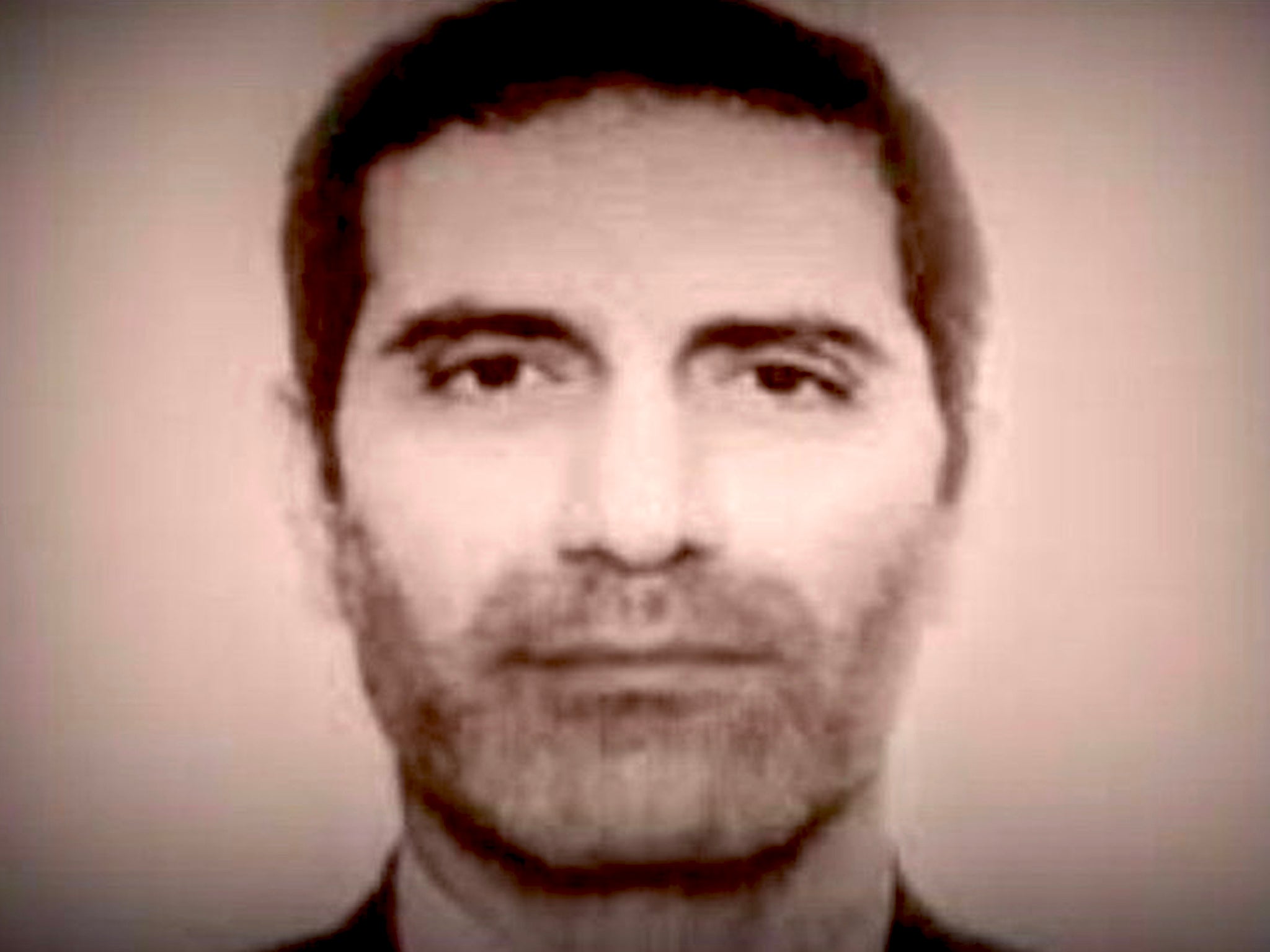Iranian diplomat sentenced to 20 years for part in failed Paris bomb plot
Diplomat suggests ruling could prompt some form of prisoner exchange

A Belgian court sentenced an Iranian diplomat to the maximum 20 years in prison for his role in a 2018 bomb plot targeting a gathering of dissidents and their supporters that included former US president Donald Trump’s lawyer Rudolph “Rudy” Giuliani and former Canadian prime minister Stephen Harper.
Assadollah Assadi was involved in an elaborate cross-border terrorism plot that could have been out of an airport bookstore spy thriller.
He was arrested in July 2018 in Germany, while he was travelling back from a meeting with a Belgian couple at a Pizza Hut in Luxembourg.
There he handed the pair more than a pound (0.5kg) of the highly explosive compound TATP and a detonator to be used to bomb a Paris meeting of the People’s Mujahedin Organisation, an exiled Iranian political fringe group also known by the acronyms MEK and MKO.
Amir Saadouni and Nasimeh Naami, the Belgian-based couple who collected the explosives and transported them in the boot of their Mercedes sedan, were also sentenced to between 15 and 18 years in prison, as was another Belgian-based accomplice named Mehrdad Erfani, whose role was to guide the couple once in Paris.
All three are to be stripped of their Belgian citizenships. Adding to the cloak-and-dagger aura of the case, Erfani was widely known among the Iranian diaspora in Belgium as a supporter of the same MEK he was tasked with attacking.
Senior officials said they have uncovered evidence not only connecting the conspirators to each other but tying Assadi to Tehran, from where they have alleged senior intelligence and security officials masterminded the scheme.
Assadi and the Belgian couple, along with another accomplice, were being monitored by European intelligence officials and were arrested before they could carry out the attack.
Had the plot succeeded it could have been among the most devastating terror attacks on European soil in recent history.
“This would have been an attack on the democratic state of law and freedom of speech,” the judge said, according to the Belgian broadcaster VRT. "Thousands of people were present at the rally in Paris. This would have resulted in many fatalities due to the explosion but also the subsequent chaos.”
The MEK has cultivated strong ties among Washington elites opposed to the regime in Tehran. More than 30 US political and military figures attended the 30 June conference, along with European parliamentarians and local officials and Middle East dignitaries that the organisation, once listed as a terror group by the US, had cultivated over the years.
“We were there without knowing we were at risk,” Maltese lawmaker Mario Galea, who spoke at the event just outside Paris, told the Malta Independent. “There were many people present for this conference, as many Iranians who live in Europe attended, and children were put in peril.”
European officials have placed sanctions on individuals within Iran’s Ministry of Intelligence and Security whom they allege were behind the plot, as well as several other assassinations and attempted attacks against dissidents on the continent.
Iranian officials have alleged the entire operation was staged to make Iran look bad. Iran has repeatedly complained that Assadi’s diplomatic immunity had been violated. But European officials have countered that as third counsellor to the embassy in Vienna he did not enjoy diplomatic protections outside of Austria.
“The ruling shows two things: a diplomat doesn’t have immunity for criminal acts ... and the responsibility of the Iranian state in what could have been carnage,” prosecutor Georges-Henri Beauthier told reporters gathered outside the Antwerp courthouse where the sentencing hearing was held.
Iranian officials will undoubtedly see the verdict as a message. Iran’s judiciary lacks independence and transparency, and is often used as a tool by regime stalwarts against perceived domestic and international enemies, and Iranian officials often assume that judicial systems in the west operate similarly.
Iranian foreign ministry spokesman Saeed Khatibzadeh said last year the Iranians would not recognise any ruling by the Belgian court. “This court is not qualified, and the current legal process is not valid because of [Assadi’s] diplomatic immunity,” he said in November. "We will not recognise any sentence that may follow the proceedings. He is not guilty, and it is clear he has been the target of a plot.”
Counterterror experts say the case, along with other plots allegedly carried out by Iran in the Netherlands, Denmark, Albania, and Turkey, has suggested the existence of a deep and wide Iranian intelligence network run out of diplomatic missions throughout Europe.
Iran is holding several dual nationals in prison, including French social scientist Fariba Adelkhah and German activist Nahid Taghavi, and the sentencing of Assadi could increase European leverage for their release.
“I am pretty sure this will prompt some sort of prisoner exchange,” said one European diplomat. “But let’s see.”
Join our commenting forum
Join thought-provoking conversations, follow other Independent readers and see their replies
Comments
Bookmark popover
Removed from bookmarks